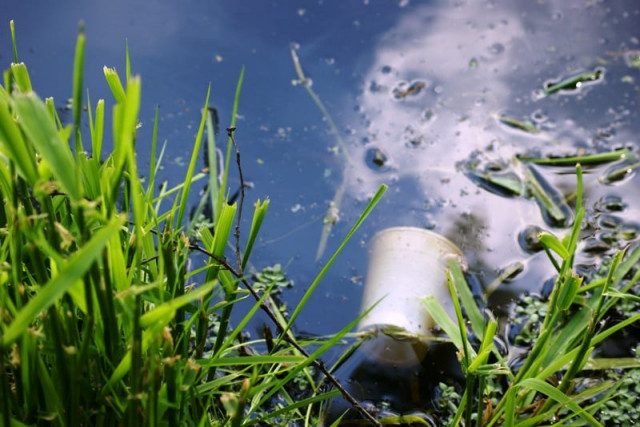The Karachi NGO for whom success means putting all its hard work down the drain
After 30 years the model is being picked up by other non-profits across Pakistan.

Imitation is the sincerest form of flattery. And indeed what better validation for an NGO’s 30 years of work that now over 250 smaller groups want to replicate its model across Pakistan?
This is the story of the Orangi Pilot Project whose low-cost sewers have changed neighbourhoods not just in Karachi where it started work in 1981 but as far away as Battagram in Khyber-Pakhtunkhwa.
The idea is simple but can make a crucial difference in unplanned settlements ignored by cash-strapped local governments. People pool up to Rs3,000 a house in a lane to finance, manage and maintain latrines in their homes, underground sewerage lines in the lanes and secondary sewers. The government is then responsible to provide main sewers or box drains and treatment plants.
OPP began working in 1981 and started from Hanifabad in Orangi No. 1. “It took us six months to help build the system in just one lane,” recalled OPP’s Mohammad Javed Ali. “But then slowly and gradually, the replication started.”
The impact of the model started to emerge after four years. “At first we used to help locals with everything from conducting surveys, to making designs, [giving them the] tools, laying out cost estimates, technical assistance and supervision,” explains Ali. “But then people started doing it all by themselves, leaving us with just the task of technical advice.” OPP trained masons and labour from the area and that helped in the years to come.
This signified a major shift in thinking. Speak to Shahid Abdulla, one of Pakistan’s leading architects, and he will tell you that well-off people spend the most money on toilets when building their houses. But in low-income colonies where it takes decades to even get entitlement to the land, sanitation is the least priority for home owners. OPP’s technical adviser, Sajid Khan, highlights the paradox: “No one likes to see sewage accumulated outside their home. But all of them like to wait for the government to do something about it.” In places like Orangi and Baldia, unplanned settlements sprung up with open sewers flowing past homes in the alleyway because they were not connected to the main underground pipes. “It is not hard to make people realize how much they risk in terms of poor health when there is an open gutter right where you live,” says Khan. “The problem is that there is a general perception that constructing a sewerage system costs a lot of money.”
There is a good reason for that fear. The state-run Karachi Water and Sewerage Board never has enough money to pay attention to ‘slums’. “At the start of OPP, in the 1990s the system was being built for Rs625 per house,” says Khan. “Now it costs Rs2,500 per house. But a government agency will build the same thing at 10 times this cost.”
OPP’s director Parveen Rehman sums up why this model has worked so well: “This is something done entirely by the people.”
Published in The Express Tribune, December 3rd, 2012.



















COMMENTS
Comments are moderated and generally will be posted if they are on-topic and not abusive.
For more information, please see our Comments FAQ